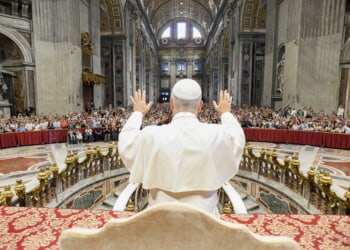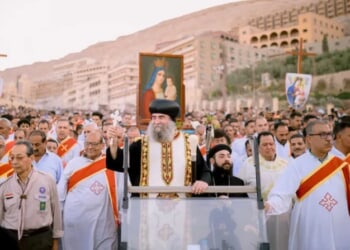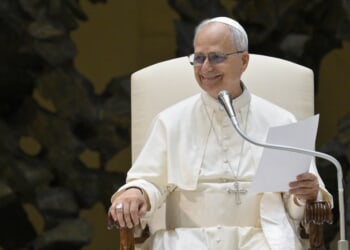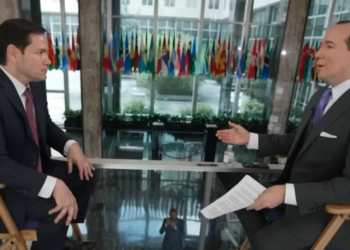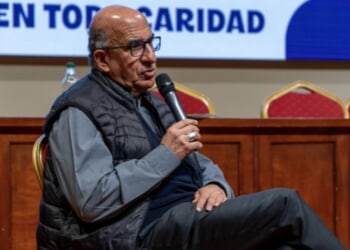CNA Staff, Sep 11, 2025 /
17:27 pm
After two children died and more than 20 people were injured by a transgender-identifying man in Minneapolis in August, Catholic schools around the country have been evaluating their security measures, with some hiring security guards and others allowing teachers and staff to be armed.
The Diocese of Buffalo this week announced it has hired armed security guards for the 29 Catholic elementary schools in its jurisdiction and has also engaged a “security consultant” to help create “comprehensive safety plans tailored to each school community.”
Catholic schools superintendent Joleen Dimitroff sent a letter to parents informing them of the decisions, which she said are “a reflection of our shared belief that the safety of our children is priceless and must be protected with the highest level of care.”
Parents’ reactions have been mixed. Marc Bruno, a longtime Buffalo public school teacher, called the move “a necessary step.”
“No one wants to see guns in the schools,” he told local ABC news station WKBW. However, he continued, “if you look at some of the previous shootings, principals have thrown their bodies at the gunman, and you know, our bodies don’t stand a chance against a bullet.”
One mother opposed the move, saying having armed security guards will put “children’s lives in danger.” She said she will not continue sending her child to school with armed guards present, emphasizing that her child “isn’t allowed to have peanut butter in his classroom to protect kids, but you want a stranger strolling the halls with a gun?”
Arming teachers
A less-talked-about solution among Catholic schools is the practice of arming school staff, including teachers.
In Ohio, nearly 100 public school districts — and even some private Christian schools — have anonymous armed staff this year, up from 67 the year before, according to a roster released by the Ohio Department of Public Safety.
Hametown Christian Academy, a private school in Norton, Ohio, allows armed staff.
Associate pastor and head of school safety at the school Rick Wright told the Akron Beacon Journal on Aug. 25 that the school board decided it was “prudent to arm teachers and staff members” due to the increase in school shootings in recent years.
“A gun is not evil,” Wright said. “It is a tool, and the fact that some of our staff may be armed is a deterrent.”
The names and numbers of teachers and other school staff carrying guns are not publicly available, nor are the total number of armed staff in each district. All armed staff are trained to use their weapons, according to Wright.
Schools post signs alerting visitors of the gun policy, hoping the knowledge that staff are armed will serve as “a deterrent,” Wright said.
If you “put up a no gun zone sign,” Wright said, “you’re telling somebody you can come in here and shoot all you want.”
“It works the opposite (of the intent); you’ve made yourself a soft target,” he said.
(Story continues below)
Subscribe to our daily newsletter
An independent Catholic school in the South that wishes to remain unnamed told CNA that after extensive discussion about campus security, administrators arrived at an “informal” security policy that involves armed staff.
“We’re pretty sure some of the teachers have guns in their cars,” an administrator told CNA.
When asked whether teachers were also carrying concealed weapons, the administrator said he does not know, and the school has “never said yes or no” to the practice.
Because of the “high quality of the teachers” at the school, the administrator said the leadership “came to the conclusion that the teachers would go after a guy with a gun rather than run away.” The school would “call the police and then the teachers with weapons would use … deadly force” if necessary to protect students.
“We’re willing to bet that would be a sufficient response,” he said.
Funding for security measures
Funding for the new security measures in the Buffalo Diocese for the 2025-2026 school year has been provided by the Foundation for the Roman Catholic Diocese of Buffalo, according to Dimitroff. Tuition will increase in subsequent years to cover the cost, which might also be covered by public funding.
James Cultrara, the director for education for the New York State Catholic Conference, told CNA after the 2012 school shooting in Sandy Hook, Connecticut, that New York state lawmakers had instituted two funding streams to address school security: one for public schools and one for private schools.
The private school funding program has expanded tenfold, from $7 million initially to more than $70 million. Schools can use the funds to address anything related to “health, safety, and security.” Environmental hazard mitigation as well as security cameras, security guards, and remote door locks are covered by the funding, Cultrara said.
The Minnesota Catholic Conference released a statement on Sept. 5 saying it “welcomes a broader legislative discussion about preventing gun violence” and asking the state Legislature to address security funding disparities between public and private schools.
Jason Adkins, executive director of the Minnesota Catholic Conference, noted that while the Catholic Church in Minnesota “has long supported commonsense gun regulations, such as protective orders and expanded background checks,” neither of those measures prevented “the Annunciation tragedy.”
Adkins noted that while “Americans have a right to possess firearms,” that right comes with responsibilities, including that of public officials to address the “deeper causes of violence — mental health struggles, family breakdown, and a growing despair often worsened by harmful ideologies, substance abuse, and the effects of the absence of God in people’s lives.”
Adkins urged the Legislature to reconsider recently-enacted laws that loosen restrictions on THC (a cannabis plant derivative) and “the widely debated treatment of young people experiencing gender dysphoria.”
A controversial Minnesota law prohibits mental health counselors from practicing so-called conversion therapy on LGBT youth, which in practice means that therapists who want to help people who do not want to embrace a LGBT identity are fearful of doing so, according to Christian therapist Dr. David Kirby, who testified against the legislation before it passed.







